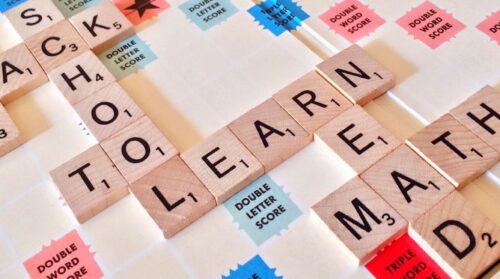OBJETIVOS
This short course looks at the process of f inding work. The f irst lessons focus on the initial part of the process from the point of view of a Human Resources department, introducing some of the key vocabulary used to talk about working l i fe and common collocations used to describe the different phases that people pass through during their career. The course then moves on to look at adjectives used to describe personal qualities and giving reasons for our opinions and choices, a useful skill for interview situations.
The second unit looks at more specific vocabulary and grammar to help in a job interview. There is revision on describing physical spaces as well as describing roles within a company. As courtesy plays an important role in job interviews, there is a lesson covering the most useful expressions to deal with social situations politely. This unit also includes an introduction to virtual job interviews and how to prepare for them, reflecting the shift towards using online tools to carry out the initial phase of the selection process.
The f inal unit looks at simulations job interviews and gives the learner some concrete examples of interview language through l istening and speaking exercises with role- play situations to put all the previously covered topics into practical use.
ESTE CURSO ONLINE ES BONIFICABLE: ¡ CONSÚLTANOS!
FINDING A JOB
Human resources
The language of the Human Resource department: redundancy package, golden handshake, to let someone go/lay people off, headhunting, disputes, settlements, hiring and firing, payroll, performance appraisals, liaise with.
Describing functions and procedures within a HR department.
The right person for the job
Evaluating personal qualities and choosing the best candidate from given information. Comparing and contrasting candidates and giving opinions and reasons for our choices.
Are you a lone wolf?
Discussing working styles and personality traits. Giving reasons and explanations for opinions.
Adjectives to describe character: moody, open, a loner, selfish, sensitive, practical, gossip, practical joker, lone wolf.
PREPARING FOR THE JOB INTERVIEW
Describing your position and workplace. There is / There are
Grammar - There is / There are Function - Describing a role / position
Grammar - Courtesy, making requests, interrupting, confirming
Grammar - Courtesy, making requests, interrupting, confirming
Virtual interviews
This lesson covers the area of virtual interviews. As well as looking at the typical language of job interviews, it also covers the newer topic of doing a job interview at a distance, either in real time or as recorded responses to set questions. There is a reading comprehension exercise about this style of interview as well as a gapped text to practice a typical exam task. The listening task focuses on typical questions and answers that may be encountered in an interview situation as well as the opportunity to listen to, and repeat some useful expressions.
JOB INTERVIEWS
Typical situation - Job interview
In this audio, we will be listening to Philipa, personnel head Swan Selection company and Lee, who is being interviewed.
Job interview
Talk about ways to find a job and the interview process.
Common vocabulary: to apply for a job, fill in a form, work history, impressive, gaps in employment, to take a year out/gap year, to do voluntary work/work experience, qualifications.
Role-play a short job interview
JOB INTERVIEWS - REVISION
Finding a job - vocabulary
A comprehensive review of some of the key vocabulary for the topic of finding a job. Exercises include crossword, word search and matching exercises.
Typical expressions
In this review of typical expressions to use in social situations students will practice listening and writing with a dictation exercise as well as an exercise with gapped sentences to choose the correct expression to use.
Job interviews
This lesson includes typical expressions and questions used in job interviews. There is a gapped listening exercise, a question and answers matching exercise as well as gapped sentences. There is also an exercise to review the similarities and differences between face to face and virtual interviews.
 OBJETIVOS In dieser Stufe lernen Sie, über die Vergangenheit und die Zukunft zu sprechen. Sie benutzen dabei die verschiedenen Vergangenheitsformen im Deutschen. Sie lernen auch, über das Wetter zu sprechen, Einverständnis oder Ablehnung zu äussern usw. In der Stufe 4 werden bereits etwas kompliziertere Verbformen und Ausdrücke eingeführt, deren korrekte Benutzung Ihnen erklärt wird.
OBJETIVOS In dieser Stufe lernen Sie, über die Vergangenheit und die Zukunft zu sprechen. Sie benutzen dabei die verschiedenen Vergangenheitsformen im Deutschen. Sie lernen auch, über das Wetter zu sprechen, Einverständnis oder Ablehnung zu äussern usw. In der Stufe 4 werden bereits etwas kompliziertere Verbformen und Ausdrücke eingeführt, deren korrekte Benutzung Ihnen erklärt wird. OBJETIVOS Lernziele: In diesem Block lernt der/die Schüler/-in, sich korrekt auf einem fortgeschrittenen, unabhängigen Niveau auszudrücken. Er/sie wird Situationen aus der Arbeitswelt, der Hausarbeit oder der Freizeit kennenlernen, die sich sowohl in der Gegenwart als auch in der Vergangenheit und der Zukunft abspielen.
OBJETIVOS Lernziele: In diesem Block lernt der/die Schüler/-in, sich korrekt auf einem fortgeschrittenen, unabhängigen Niveau auszudrücken. Er/sie wird Situationen aus der Arbeitswelt, der Hausarbeit oder der Freizeit kennenlernen, die sich sowohl in der Gegenwart als auch in der Vergangenheit und der Zukunft abspielen. OBJETIVOS Lernziele: In diesem Block wird der/die Schüler/-in lernen, das Aussehen einer Person gemäß ihres Alters und Körperbaus genau beschreiben zu können. Er/sie wird sich in Situationen, die mit der Theater- und Kunstszene im Zusammenhang stehen, korrekt ausdrücken können, ebenso im Bezug auf Themen wie Politik und Wissenschaft. Gleiches gilt für Gespräche über Erfahrungen und Gebräuche der Vergangenheit, sowie für geografische Bezeichnungen und Wegbeschreibungen. Im übrigen bietet dieser Block eine Wiederholung der wichtigsten Verbzeiten der Gegenwart, der Vergangenheit und der Zukunft.
OBJETIVOS Lernziele: In diesem Block wird der/die Schüler/-in lernen, das Aussehen einer Person gemäß ihres Alters und Körperbaus genau beschreiben zu können. Er/sie wird sich in Situationen, die mit der Theater- und Kunstszene im Zusammenhang stehen, korrekt ausdrücken können, ebenso im Bezug auf Themen wie Politik und Wissenschaft. Gleiches gilt für Gespräche über Erfahrungen und Gebräuche der Vergangenheit, sowie für geografische Bezeichnungen und Wegbeschreibungen. Im übrigen bietet dieser Block eine Wiederholung der wichtigsten Verbzeiten der Gegenwart, der Vergangenheit und der Zukunft. OBJETIVOS En este nivel el alumno aprende utilizar el pasado y el futuro en conversaciones. Por consiguiente, conocerá las formas diferentes del pasado del alemán. Además cubre temas como el tiempo, expresar acuerdo o desacuerdo, etc. En el nivel 4 se introduce conjugaciones de verbos y expresiones más complejas y se explica el uso correcto de los mismos.
OBJETIVOS En este nivel el alumno aprende utilizar el pasado y el futuro en conversaciones. Por consiguiente, conocerá las formas diferentes del pasado del alemán. Además cubre temas como el tiempo, expresar acuerdo o desacuerdo, etc. En el nivel 4 se introduce conjugaciones de verbos y expresiones más complejas y se explica el uso correcto de los mismos. OBJETIVOS En este nivel el alumno aprende utilizar el pasado y el futuro en conversaciones. Por consiguiente, conocerá las formas diferentes del pasado del alemán. Además cubre temas como el tiempo, expresar acuerdo o desacuerdo, etc. En el nivel 4 se introduce conjugaciones de verbos y expresiones más complejas y se explica el uso correcto de los mismos.
OBJETIVOS En este nivel el alumno aprende utilizar el pasado y el futuro en conversaciones. Por consiguiente, conocerá las formas diferentes del pasado del alemán. Además cubre temas como el tiempo, expresar acuerdo o desacuerdo, etc. En el nivel 4 se introduce conjugaciones de verbos y expresiones más complejas y se explica el uso correcto de los mismos. OBJETIVOS En este nivel están en el centro de los objetivos de aprendizaje tanto el desarrollo de funciones sociales del lenguaje, como la interacción lingüística en países extranjeros germanohablantes. El alumno será capaz de entender expresiones de uso frecuente relacionadas con ámbitos de significado inmediato. En este bloque, el alumno aprende a describirse a si mimo y a otras personas de forma sencilla. Llevara y aprenderá conversaciones sencillas sobre el aspecto y la posición de personas, y expresará la probabilidad, la obligación y la frecuencia. Además podrá denominar correctamente entre otras cosas a las partes del cuerpo humano, la ropa y a los puntos de orientación importantes en ciudades y lugares.
OBJETIVOS En este nivel están en el centro de los objetivos de aprendizaje tanto el desarrollo de funciones sociales del lenguaje, como la interacción lingüística en países extranjeros germanohablantes. El alumno será capaz de entender expresiones de uso frecuente relacionadas con ámbitos de significado inmediato. En este bloque, el alumno aprende a describirse a si mimo y a otras personas de forma sencilla. Llevara y aprenderá conversaciones sencillas sobre el aspecto y la posición de personas, y expresará la probabilidad, la obligación y la frecuencia. Además podrá denominar correctamente entre otras cosas a las partes del cuerpo humano, la ropa y a los puntos de orientación importantes en ciudades y lugares. OBJETIVOS El objetivo principal de este nivel es enseñarle al alumno una serie de capacidades, para que tras terminar el curso pueda hacerse entender de forma sencilla. El alumno será capaz de entender y utilizar expresiones familiares y diarias que pretenden satisfacer necesidades concretas. A lo largo de la progresión, el alumno aprenderá a describir su entorno inmediato de manera elemental, a interactuar en situaciones comunicativas básicas, así como identificar y nombrar correctamente los objetos de la vida diaria con construcciones atributivas sencillas.
OBJETIVOS El objetivo principal de este nivel es enseñarle al alumno una serie de capacidades, para que tras terminar el curso pueda hacerse entender de forma sencilla. El alumno será capaz de entender y utilizar expresiones familiares y diarias que pretenden satisfacer necesidades concretas. A lo largo de la progresión, el alumno aprenderá a describir su entorno inmediato de manera elemental, a interactuar en situaciones comunicativas básicas, así como identificar y nombrar correctamente los objetos de la vida diaria con construcciones atributivas sencillas. OBJETIVOS This short course looks at the process of f inding work. The f irst lessons focus on the initial part of the process from the point of view of a Human Resources department, introducing some of the key vocabulary used to talk about working l i fe and common collocations used to describe the different phases that people pass through during their career. The course then moves on to look at adjectives used to describe personal qualities and giving reasons for our opinions and choices, a useful skill for interview situations. The second unit looks at more specific vocabulary and grammar to help in a job interview. There is revision on describing physical spaces as well as describing roles within a company. As courtesy plays an important role in job interviews, there is a lesson covering the most useful expressions to deal with social situations politely. This unit also includes an introduction to virtual job interviews and how to prepare for them, reflecting the shift towards using online tools to carry out the initial phase of the selection process. The f inal unit looks at simulations job interviews and gives the learner some concrete examples of interview language through l istening and speaking exercises with role- play situations to put all the previously covered topics into practical use. ESTE CURSO ONLINE ES BONIFICABLE: ¡ CONSÚLTANOS! FINDING A JOB Human resources The language of the Human Resource department: redundancy package, golden handshake, to let someone go/lay people off, headhunting, disputes, settlements, hiring and firing, payroll, performance appraisals, liaise with. Describing functions and procedures within a HR department. The right person for the job Evaluating personal qualities and choosing the best candidate from given information. Comparing and contrasting candidates and giving opinions and reasons for our choices. Are you a lone wolf? Discussing working styles and personality traits. Giving reasons and explanations for opinions. Adjectives to describe character: moody, open, a loner, selfish, sensitive, practical, gossip, practical joker, lone wolf. PREPARING FOR THE JOB INTERVIEW Describing your position and workplace. There is / There are Grammar - There is / There are Function - Describing a role / position Grammar - Courtesy, making requests, interrupting, confirming Grammar - Courtesy, making requests, interrupting, confirming Virtual interviews This lesson covers the area of virtual interviews. As well as looking at the typical language of job interviews, it also covers the newer topic of doing a job interview at a distance, either in real time or as recorded responses to set questions. There is a reading comprehension exercise about this style of interview as well as a gapped text to practice a typical exam task. The listening task focuses on typical questions and answers that may be encountered in an interview situation as well as the opportunity to listen to, and repeat some useful expressions. JOB INTERVIEWS Typical situation - Job interview In this audio, we will be listening to Philipa, personnel head Swan Selection company and Lee, who is being interviewed. Job interview Talk about ways to find a job and the interview process. Common vocabulary: to apply for a job, fill in a form, work history, impressive, gaps in employment, to take a year out/gap year, to do voluntary work/work experience, qualifications. Role-play a short job interview JOB INTERVIEWS - REVISION Finding a job - vocabulary A comprehensive review of some of the key vocabulary for the topic of finding a job. Exercises include crossword, word search and matching exercises. Typical expressions In this review of typical expressions to use in social situations students will practice listening and writing with a dictation exercise as well as an exercise with gapped sentences to choose the correct expression to use. Job interviews This lesson includes typical expressions and questions used in job interviews. There is a gapped listening exercise, a question and answers matching exercise as well as gapped sentences. There is also an exercise to review the similarities and differences between face to face and virtual interviews.
OBJETIVOS This short course looks at the process of f inding work. The f irst lessons focus on the initial part of the process from the point of view of a Human Resources department, introducing some of the key vocabulary used to talk about working l i fe and common collocations used to describe the different phases that people pass through during their career. The course then moves on to look at adjectives used to describe personal qualities and giving reasons for our opinions and choices, a useful skill for interview situations. The second unit looks at more specific vocabulary and grammar to help in a job interview. There is revision on describing physical spaces as well as describing roles within a company. As courtesy plays an important role in job interviews, there is a lesson covering the most useful expressions to deal with social situations politely. This unit also includes an introduction to virtual job interviews and how to prepare for them, reflecting the shift towards using online tools to carry out the initial phase of the selection process. The f inal unit looks at simulations job interviews and gives the learner some concrete examples of interview language through l istening and speaking exercises with role- play situations to put all the previously covered topics into practical use. ESTE CURSO ONLINE ES BONIFICABLE: ¡ CONSÚLTANOS! FINDING A JOB Human resources The language of the Human Resource department: redundancy package, golden handshake, to let someone go/lay people off, headhunting, disputes, settlements, hiring and firing, payroll, performance appraisals, liaise with. Describing functions and procedures within a HR department. The right person for the job Evaluating personal qualities and choosing the best candidate from given information. Comparing and contrasting candidates and giving opinions and reasons for our choices. Are you a lone wolf? Discussing working styles and personality traits. Giving reasons and explanations for opinions. Adjectives to describe character: moody, open, a loner, selfish, sensitive, practical, gossip, practical joker, lone wolf. PREPARING FOR THE JOB INTERVIEW Describing your position and workplace. There is / There are Grammar - There is / There are Function - Describing a role / position Grammar - Courtesy, making requests, interrupting, confirming Grammar - Courtesy, making requests, interrupting, confirming Virtual interviews This lesson covers the area of virtual interviews. As well as looking at the typical language of job interviews, it also covers the newer topic of doing a job interview at a distance, either in real time or as recorded responses to set questions. There is a reading comprehension exercise about this style of interview as well as a gapped text to practice a typical exam task. The listening task focuses on typical questions and answers that may be encountered in an interview situation as well as the opportunity to listen to, and repeat some useful expressions. JOB INTERVIEWS Typical situation - Job interview In this audio, we will be listening to Philipa, personnel head Swan Selection company and Lee, who is being interviewed. Job interview Talk about ways to find a job and the interview process. Common vocabulary: to apply for a job, fill in a form, work history, impressive, gaps in employment, to take a year out/gap year, to do voluntary work/work experience, qualifications. Role-play a short job interview JOB INTERVIEWS - REVISION Finding a job - vocabulary A comprehensive review of some of the key vocabulary for the topic of finding a job. Exercises include crossword, word search and matching exercises. Typical expressions In this review of typical expressions to use in social situations students will practice listening and writing with a dictation exercise as well as an exercise with gapped sentences to choose the correct expression to use. Job interviews This lesson includes typical expressions and questions used in job interviews. There is a gapped listening exercise, a question and answers matching exercise as well as gapped sentences. There is also an exercise to review the similarities and differences between face to face and virtual interviews.



Menú
Nosotros
Talento
Formación
Mejoras
Gestión
Packs
Essentia Social
Blog
Contacto
Dónde estamos
Sede central
Borrell 4
08172 Sant Cugat del Vallès
Sant Cugat
Avenida Rius i Taulet 13
08172 Sant Cugat del Vallès
Cerdanyola
Avenida Catalunya 24
08290 Cerdanyola del Vallès
Datos de contacto
Email: info@grupessentia.com
Teléfono: +34 936 756 700
Whatsapp: 693 291 475
Más información
Política de privacidad
Aviso legal
Política de Cookies
Preguntas frecuentes